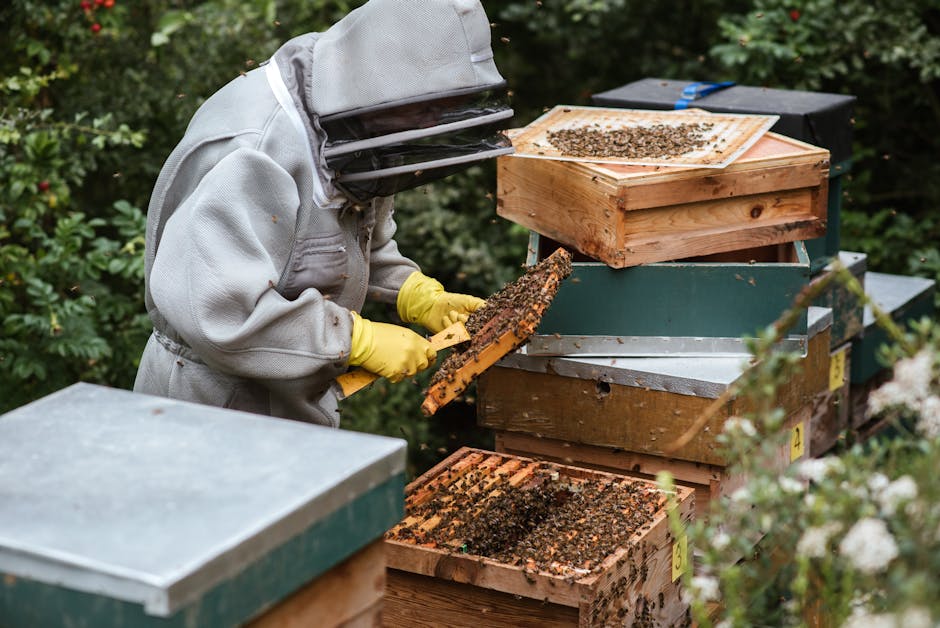The Bee Revolution: Genetic Engineering's Role in Sustainable Agriculture

The Bee Revolution: Genetic Engineering's Role in Sustainable Agriculture
In the face of accelerating global food demands and a consequent increase in agricultural pressure, the decline in honeybee populations worldwide represents not just an ecological crisis but also a critical economic challenge. Researchers at the University of Oxford have pioneered a groundbreaking solution through genetic engineering, potentially changing the landscape of pollinator management and food production.
The Challenge of Pollinator Decline
Historical context: Honeybees have long been central to the pollination of many crops, contributing significantly to the variety and availability of foods. Yet, their numbers have steadily declined due to factors like habitat destruction, climate change, and pesticide use. This loss threatens not just biodiversity but global food security.
Innovative Breakthrough in Pollinator Nourishment
Researchers have reengineered the yeast Yarrowia lipolytica to produce essential sterols found in natural pollen, which are vital for bee health and reproduction. This bioengineering feat, enabled by CRISPR-Cas9, promises to bolster bee health, thereby enhancing their ability to pollinate and survive in adverse environments.
**Comparative Analysis:** Traditional vs. Engineered Diets
Traditional commercial bee diets often lack crucial nutrients, impacting bee fertility and survival negatively. The engineered yeast diet includes all six sterols necessary for bee health, mimicking the natural nutritional profile of pollen. Research highlights significant improvements in colony health, reproductive outcomes, and survival rates.
By engineering optimal diets for bees, we not only enhance their health and ecological function but also secure a fundamental pillar of global food production.
Real-World Implications and Ecological Safety
The potential benefits extend beyond healthier bees. There is a marked reduction in competition for floral resources, potentially alleviating pressures on wild plant species and other pollinators. However, experts, including Dr. Elynor Moore, stress the necessity of extensive field trials to confirm these benefits and ensure there are no unintended ecological impacts.
**Forward-Thinking Insight:**
Adopting this genetically engineered yeast could serve as a model for addressing similar challenges in other species critical to agriculture, demonstrating a scalable and sustainable approach to conserving pollinators and ensuring food security.
Looking Forward: A Strategic Perspective on Bee Health and Agriculture
As we continue to grapple with the complexities of modern agriculture and its impact on ecological systems, innovations like the engineered yeast sterol diet represent both hope and a call to action. They offer a strategy not just for recovering honeybee populations but also for reinforcing the resilience of our food systems against environmental shifts.
The future of agriculture may well depend on our ability to integrate such biotechnological advances responsibly, ensuring that we safeguard both pollinator health and the broader ecological balance. This approach is not merely a technical fix but a strategic imperative to sustain and enhance global food security in the face of looming environmental challenges.
As we move forward, supporting interdisciplinary collaborations that harness technology for ecological conservation will be crucial. The success of the engineered yeast diet provides a compelling narrative of innovation and adaptation, one that could shape the future of sustainable farming and global food production.
